Recognize Panic Disorders: Causes, Symptoms, Diagnosis, Treatments
Panic disorder is a condition that is classified as an anxiety disorder which is characterized by the occurrence of panic attacks suddenly, anytime and anywhere, and experienced repeatedly. Under normal conditions, each person can experience anxiety at a certain time as a form of the body’s natural response in dealing with stress or life-threatening situations. However, in patients with panic disorders, feelings of anxiety, panic, and stress occur unexpectedly, without knowing the time or situation that is happening in the surrounding environment, repeatedly, often even without the presence of something dangerous or need to be feared. Let’s learn to recognize panic disorders more, what are the causes, symptoms, diagnosis and treatments from the review below.
Recognize Panic Disorders: Causes, Symptoms, Diagnosis, Treatments

Panic disorder is more often experienced by women, compared to men. This disorder generally develops as a person ages, and in many cases is triggered by stress.
Panic disorder can be cured through psychotherapy which is done in stages to provide understanding and ways of thinking to patients in dealing with panic disorder, before the symptoms begin to be felt. In addition to psychotherapy, treatment through drugs is also done to overcome panic disorders.
Causes of Panic Disorders

In some cases, panic disorder is suspected to be genetically inherited. However, there are no studies that have been able to prove why this disorder can be passed on to one or a few family members, but not to other family members.
Research has found that there are certain parts of the brain and biological processes that play a key role in regulating feelings of fear and anxiety. Some experts judge, panic disorder sufferers have an error in interpreting body movements or sensations that are actually not harmful but are considered as a threat. In addition, external factors such as environmental factors are also considered to be a trigger for panic disorder.
The following are the triggering factors for panic disorder:
⦁ Stress is the main trigger.
⦁ Family health history.
⦁ Traumatic events that have been experienced, such as accidents or severe illness.
⦁ Drastic changes in life, such as divorce or having children.
⦁ Consuming excessive caffeine and nicotine.
⦁ History of physical or sexual abuse.
Also read: Understanding the Difference between Stress and Anxiety
Symptoms of Panic Disorders
Symptoms of panic disorder usually develop in adolescence into adulthood. Signs that will be felt when experiencing panic disorder is experiencing more than three times a panic attack and always feel afraid because of panic attacks that continue to occur.
The fear created by people with panic attacks is fear that is very tense and frightening and can occur at random times or locations (anytime and anywhere).
In one panic attack, the symptoms that occur can last for 10-20 minutes. In rare cases, panic symptoms can appear for more than an hour. Symptoms that are caused also generally can vary and vary between panic disorder sufferers from one another.
Other symptoms related to panic attacks are:
⦁ Dizzy
⦁ Vertigo.
⦁ Nausea.
⦁ Hard to breathe.
⦁ Feel like suffocating.
⦁ Numbness or tingling in the hands or feet.
⦁ Chest pain.
⦁ Sweating
⦁ Shivering.
⦁ Shaky.
⦁ Convulsions.
⦁ Dry mouth.
⦁ Heartbeat.
⦁ Changes in mental states, such as feeling that the whole thing is not real or depersonalized.
⦁ Fear of death.
Diagnosis of Panic Disorders
The diagnosis of panic disorder, as written in the Diagnostic and Statistical Manual of Mental Disorder (DSM-5), is important to rule out other causes or conditions similar to panic disorders. According to DSM-5, in diagnosing the panic disorder, there are several important points in the form of:
⦁ Panic disorder is characterized by panic attacks that are quite common.
⦁ Panic disorder with panic attacks is not caused by the effects of drug use or due to illness.
⦁ Panic disorder is not related to other mental disorders, such as certain phobias such as social phobias, anxiety disorders, post-traumatic stress disorder, to obsessive-compulsive disorder.
For initial diagnosis, the doctor will determine whether the patient is suffering from a thyroid hormone disorder or heart disease from symptoms that arise during a panic attack. To help diagnose panic disorder, the doctor will conduct an examination in the form of:
⦁ Fill out the questionnaire or discuss the history of abuse of alcoholic drinks or other substances
⦁ Evaluate mental status regarding the symptoms of panic disorder that is being experienced, anxiety, fear, stress, personal problems, conditions that are afflicting, and medical history.
⦁ Thorough physical examination.
⦁ Blood tests to check thyroid function and examination of heart records (electrocardiography).
Treatment for Panic Disorders
Panic disorder treatment methods are used to reduce the frequency and intensity of panic attacks and improve the quality of life. The two main treatment methods for dealing with panic disorder are psychotherapy and drug administration. The treatment methods used will be adjusted to the patient’s overall health and the severity of the panic disorder being experienced.
Psychotherapy
Psychotherapy is believed to be the main method of effective panic disorder treatment. In psychotherapy, doctors will provide patients with understanding and change of mindset in order to deal with the panic situation that is being faced. One form of psychotherapy is cognitive behavioral therapy (cognitive behavioral therapy) which will provide the understanding and ways of thinking in dealing with panic as a situation that does not endanger the soul. At this stage, the doctor will gradually create conditions that will trigger symptoms of panic disorder. However, these conditions will be carried out with regard to patient safety. The therapy is expected to shape the habits and behavior of patients who no longer feel threatened. In addition, psychotherapy will also be successful in increasing patient confidence in relieving feelings of fear, if panic attacks that occur previously have been able to be treated.
Psychotherapy does require time and effort from the patient, but this therapy will bring the patient to a better condition than before. The results of psychotherapy, namely changes in ways of thinking and actions to be taken by patients in dealing with attacks, can be felt in a few weeks to several months. Therefore, patients will be advised to carry out psychotherapy routinely to ensure that symptoms of panic disorder can be treated and prevent a recurrence.

Drugs
Anti-anxiety drugs can be used to reduce symptoms related to panic disorders, such as panic attacks and depression. Doctors can prescribe one type of drug, then replace it, or provide a combination of drugs to increase the effectiveness of the drug. For pregnant women, breastfeeding, or planning a pregnancy, you should discuss with your doctor first about the benefits and risks. Some types of drugs that can be used to treat panic disorders are:
- Selective serotonin reuptake inhibitors (SSRIs), such as fluoxetine or sertraline. Antidepressant drugs are quite safe and low risk of side effects. This type of drug will be recommended as the first treatment to relieve panic attacks.
- Benzodiazepines, such as alprazolam or clonazepam. This sedative works by suppressing activity in the central nervous system. This drug is only consumed for a short period because it can cause drug dependence and physical or mental disorders. If you want to consume this medicine, avoid consuming alcoholic drinks. Tell your doctor if you are using other drugs, including supplements and herbal products, to avoid unwanted interactions.
- Serotonin and norepinephrine reuptake inhibitors (SNRI), such as venlafaxine. This is an antidepressant drug that can be used by doctors to relieve symptoms of panic attacks.
However, these drugs are not a good choice if you have problems with alcohol or drug use. Therefore, the types of drugs described above can also cause dangerous side effects.
Deep Breathing
To overcome panic attacks at every opportunity, there are special tricks through deep breathing exercises. One trick you can do at home is called “box breathing”, which according to neuroscience is very effective at providing relaxation as well as concentration. Fun can be done in just 5 minutes!
How:
- Remove the air from the chest, empty the lungs for four counts.
- Take a breath for four counts.
- Hold the air in the lungs for four counts. When holding your breath, don’t overexert or create pressure. Just relax even when you’re not breathing.
- Exhale slowly for four counts.
- Repeat continuously for 5 minutes to feel the benefits.
Basically, this breathing exercise can be done at any time, it doesn’t have to be done when you’re anxious or panicked. In the morning, before exercising, while watching TV, or whenever you can, just do it! It is also recommended that “box breathing” should be done for about 10-20 minutes at a time. This way, your body becomes calmer but you’re still focused.
Also read: Helping Someone with Panic Attack
Complications of Panic Disorders
In the panic disorder that is not handled properly, will make the condition of the sufferer worsen and cause a number of other problems, such as depression, alcoholism or drug abuse, being antisocial, as well as problems at school or work, to financial problems.
Prevention of Panic Disorders
There is no way that can significantly prevent panic disorder. However, there are several actions we can take to reduce the symptoms that occur. Among others are:
⦁ Avoid types of foods or sugary drinks, containing caffeine, or alcohol.
⦁ Stop smoking and don’t abuse drugs.
⦁ Carry out healthy activities, such as sports.
⦁ Needs sleep and rest.
⦁ Stress management exercises and relaxation techniques, for example by doing deep and long breathing techniques, yoga, or relaxing muscles.
⦁ Join a community that has the same problem. This is to create awareness, understanding, to get used to handling panic.
Here is a great video to learn about how you avoid panic attacks at night:
Notes from WeStressFree
Actually, the support of family and those closest to you also plays an active role in overcoming panic attacks and psychological recovery. If you want to know more about effective ways to deal with panic attacks and their handling and prevention, you can ask directly to the experts.

References
Bystritsky, et al. (2013). Current Diagnosis and Treatment of Anxiety Disorders. P T, 38(1), pp. 30-38.
Taylor, CB. (2006). Panic disorder. BMJ, 332 (7574), pp. 951-955.
NIH (2016). National Institute of Mental Health. Panic Disorder: When Fear Overwhelms.
Ankrom, S. Very Well Mind (2018). Diagnosing Panic Disorder According to DSM-5.
NHS Choices UK (2017). Panic Disorder.
NIH (2018). MedlinePlus. Panic Disorder.
Mayo Clinic (2018). Diseases and Conditions. Panic Attack and Panic Disorder.
Legg, T. Healthline (2016). Panic Disorder.
—————————————————————————————————————————————–
This post may contain affiliate links, which means I make a small commission off purchases, at no extra cost to you. Read my full disclosure here. Thank you for supporting the work I put on this site!
—————————————————————————————————————————————–
We Stress Free does not provide medical advice, diagnosis, or treatment. However, if you need someone to talk to and want to make friends, please feel free to reach me at ferra@westressfree.com. If you would like to REDUCE your STRESS and are interested to do an ONLINE THERAPY, you can do so here.

————————————————————————————————————————————
The information contained in this article is for educational and informational purposes only and is not intended as health or medical advice. Always consult a physician or other qualified health provider regarding any questions you may have about a medical condition or health objectives.
Thank you for reading today’s topic: Recognize Panic Disorders: Causes, Symptoms, Diagnosis, Treatments


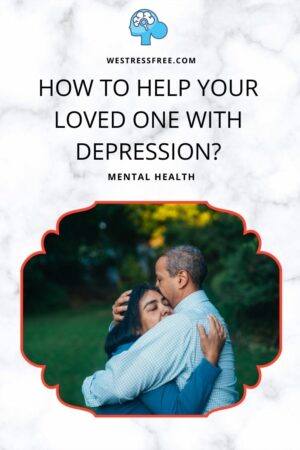

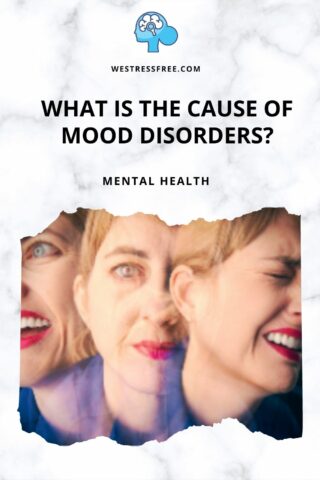
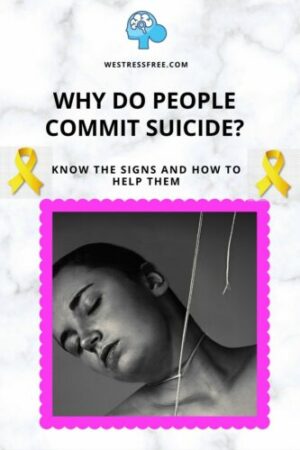


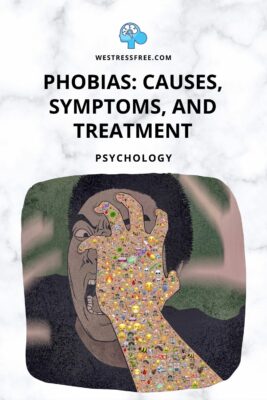

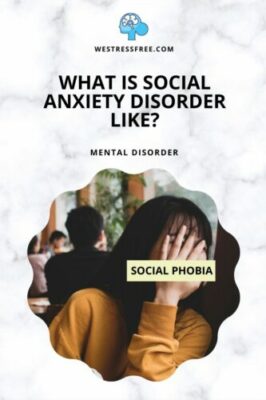
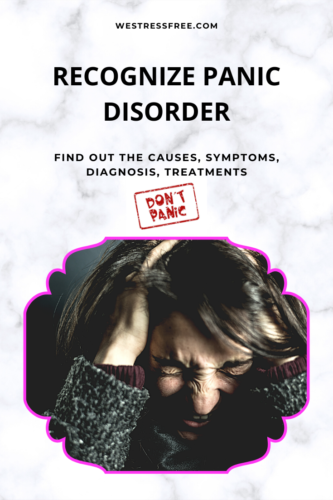





Thank you for this in-depth look into panic disorder. I’m trying to discover whether there is a link between panic disorder and what used to be called ‘homesickness’ in children. It is purely for informational/curiosity reasons but as a child I used to get terrible panic attacks if I was away from home. It was called getting homesick – but could it have been panic attacks? On the whole, reading your article I would prefer to try and get over panic attack via a mental approach rather than drugs, and I do believe yoga and meditation could be useful in this aspect, not just psychotherapy. It’s nice to read that you smile a lot!
Hello Soraya,
Thank you for taking time to visit my site, read my post and leave a comment. I really appreciate it! 😃
I have experienced home sickness and sometimes I still do since I live thousand miles away from my parents and siblings.
Personally, I think when we are homesick, we’ll be sad and think about home so much. We won’t be happy for a bit but when it gets worse to the point where we don’t want to eat and lose interest in doing other stuff, that’s when it becomes bad. It could lead to anxiety and end up to be a depression. People who are homesick often experience depression because they don’t have the social support they have at home.
I agree with you. Taking care of mental health is much better by going to take a mental approach. I love your idea. Mediation, yoga, deep breathing exercises are great help. However, we should also seek help from our family and friends to get their moral support and get help from professionals when things get worse.
Once again thank you for your nice comment. 🙂
Stay safe, happy and healthy!
Cheers,
Ferra 💕
Thanks, for giving us an informative article. By reading your post.I learned more about Panic disorder.I learned about the symptoms of Panic disorder from the article.I also have some symptoms of it. I have been aware of Panic disorder by reading your post. I have been aware of treatment for it. Thanks for making me aware of your article. This post is very beneficial for us to live a healthy life. Everyone should know about Panic disorder.
This post is very helpful for every person I will share this post on my social media.
Hello Alamgir,
Thank you for taking time to visit my site, read my post and leave a comment. 😃
Sharing is caring. The more people learn about this post the better. Especially during this difficult time with coronavirus. People get panic attack easily. Thank you for willing to share it to your social media. I really appreciate it!
Stay safe, happy and healthy. 👍
Ferra 💕